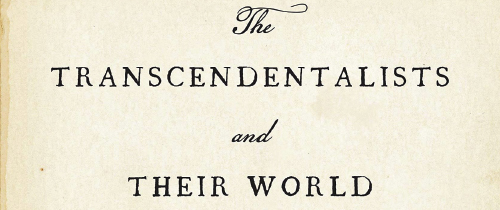The Transcendentalists and Their World

MHS Event
Robert Gross, University of Connecticut, in conversation with Catherine Allgor, MHS
Bancroft Prize winning author Robert Gross presents a fresh view of the Transcendentalists; thinkers whose impact on philosophy and literature would spread from Concord, Mass, to all corners of the earth. Ralph Waldo Emerson, Henry David Thoreau, Nathaniel Hawthorne, and the Alcotts lived in Concord, but the town was no pastoral idyll fit for poets and philosophers. The small, ordered society founded by Puritans and defended by Minutemen was dramatically unsettled by capitalism, democracy, and integration into the wider world. The Transcendentalists and Their World is both an intimate journey into a small community and a searching cultural study of major American writers as they plumbed the depths of the universe for spiritual truths.
Register to attend in person Register to attend virtually
Hybrid Event
MHS maintains a high standard of Covid protection. We require all people entering our building to wear a mask while in a public space and anyone who will be in the building for a significant period of time (i.e. more than making a delivery) must provide proof of vaccination.
